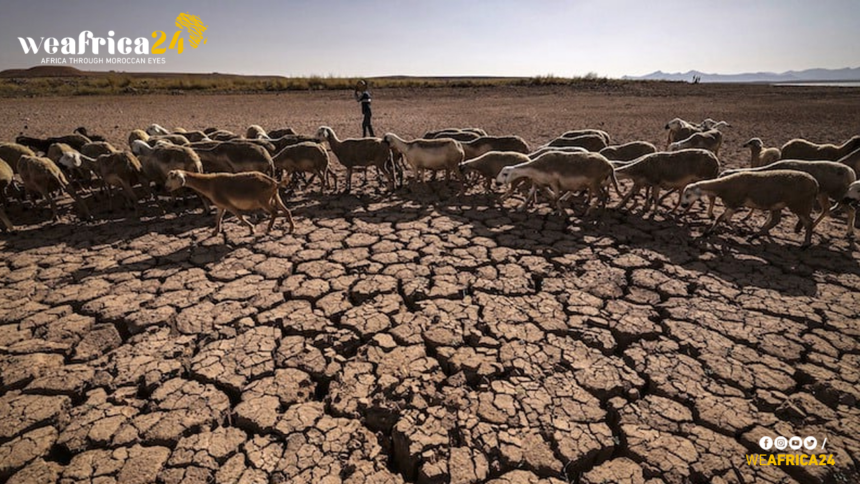Morocco is currently facing one of its worst drought waves, experiencing a record drop in rainfall by up to 67 percent and a significant decrease of 66 percent in water flow to reservoirs over the past three months. These figures were announced by the Minister of Equipment and Water, Nizar Baraka, in a press conference following the government’s weekly meeting last Thursday. The impact of this decline is affecting the country’s water, environment, and climate.
Impact of Low Rainfall and Drought
Morocco heavily relies on rainfall and natural water flow for its economic and agricultural needs. With a substantial reduction in available water, the negative effects are clear, including a decrease in agricultural production, food supply shortages, potentially leading to an economic crisis, and an increase in food prices.
The drought exacerbates water resource stress in the country, witnessing a sharp decrease in water flow to reservoirs, affecting the ability to secure drinking water for the population. The worsening situation could expose many areas to a severe shortage of potable water, posing a significant challenge to public health.
As average temperatures rise by 1.3 degrees during the same period, this contributes to increased evaporation of stored water in reservoirs, making water supply more challenging. This, in turn, negatively affects industrial and service sectors, impacting overall economic growth.
It’s not just water that is affected; the drought conditions contribute to environmental degradation and have a detrimental impact on the climate. Reduced rainfall can lead to an increase in harsh weather phenomena, such as sandstorms, with negative effects on plants and wildlife.
Morocco’s Response to These Challenges
Facing these unprecedented challenges, Morocco’s Ministry of Equipment and Water announced the expansion of the industrial cloud seeding project named “Ghait” in the coming year. The initiative involves the use of specialized aircraft for cloud seeding to enhance rainfall and bolster water supplies.
This operation is expected to cover 12 new locations, bringing the total number of industrial cloud seeding centers in Morocco to 42 centers and 7 major hubs.
Additionally, Morocco is working towards achieving water supply sustainability through various projects and initiatives, notably the “Drinking Water and Irrigation Supply Program for the Period 2020-2027.” This program aims to improve water infrastructure and distribution.
Furthermore, the project linking the Spou Basin to the Abi Raqraq Basin will contribute to providing drinking water for the Rabat-Casablanca axis, targeting a daily water flow rate of one million cubic meters, translating to 360 million cubic meters annually.







